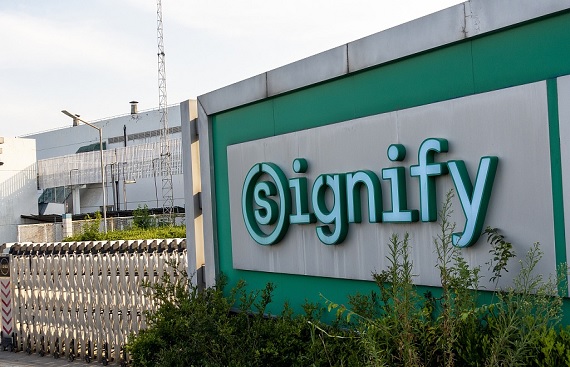Signify Expands India Manufacturing for Global Market
By
siliconindia | Monday, 24 June 2024, 09:57:33 AM IST

Signify Innovations India is intensifying its focus on India as a pivotal market, evaluating its manufacturing capacity to serve both domestic and global demands under the 'China Plus One' strategy. The company, formerly known as Philips Lighting, is not only expanding its role in the Indian market but is also looking to elevate its contribution to Signify's global business, according to Sumit Joshi, Vice-Chairman and Managing Director of Signify Innovations India.
"India is a very important market because of its domestic potential, but its role for Signify globally is becoming increasingly significant", Joshi remarked in a recent interview. He highlighted that Signify India is set to play a crucial role in the design, research, and development (R&D) of Signify's global lighting products. As the ecosystem for electronic components, including semiconductors, matures in India, the scope for manufacturing opportunities is expected to expand significantly.
Signify's strategic focus aligns with the 'China Plus One' policy, which encourages diversifying manufacturing bases beyond China. Joshi mentioned, “Over time, we aim to see India playing a much larger role in manufacturing for global markets”. This shift is supported by the Indian government’s efforts and private sector initiatives to develop a robust electronics ecosystem. "The electronics ecosystem in India is expected to develop considerably in the next 6-7 years," Joshi added.
Currently, India lacks a fully developed ecosystem for critical components like semiconductors. However, with focused efforts from both government and private players, this scenario is expected to improve, making India a more viable hub for electronics manufacturing.
Joshi emphasized the success of the Indian government’s Production Linked Incentive (PLI) scheme for LED light manufacturing, which has driven significant capital investments. "The PLI scheme has been one of the most successful initiatives in recent years, and we are looking forward to the announcement of the second tranche in the upcoming Budget", he said. Signify has capitalized on this scheme to enhance its investment in India.
Signify’s current infrastructure in India includes two R&D facilities located in Noida and Pune, an innovation lab in Bengaluru, and a manufacturing plant in Vadodara. The company also develops products like the Ecolink brand for the affordable segment, which has a presence in over 15 countries and exports to around 15 international markets.
Joshi, who previously served as president of the Electric Lamp and Component Manufacturers Association of India (ELCOMA), noted the Indian lighting industry's shift towards connected lighting. This market segment is expected to double in the next three years. Currently, smart connected lighting constitutes less than 10% of the industry but is higher in the professional sector at approximately 20%.
The transition from CFL to LED lighting in India is nearly complete, and the focus is now on upgrading to smart connected lighting. This shift is driven by technological advancements and the increasing efficiency of LED chips, making smart lighting more accessible to consumers. "The next stage of lighting in India will be marked by differentiated, better, and connected lighting, which will impact both professional environments and homes", Joshi explained.
In addition to its market expansion efforts, Signify is committed to achieving net-zero carbon emissions by 2040 globally. The Indian market is ahead of schedule in this regard, thanks to proactive government initiatives that have facilitated a smooth transition to LED lighting. "Our LED transformation in India, supported by government initiatives, has significantly reduced energy consumption, positioning us well on our path to net-zero emissions", Joshi concluded.
Read More News :
Ambuja Cements and ACC Lead with Innovative Digital Initiatives
HP Launches Next-Gen AI PCs in India for Businesses and Creators


.jpg)
